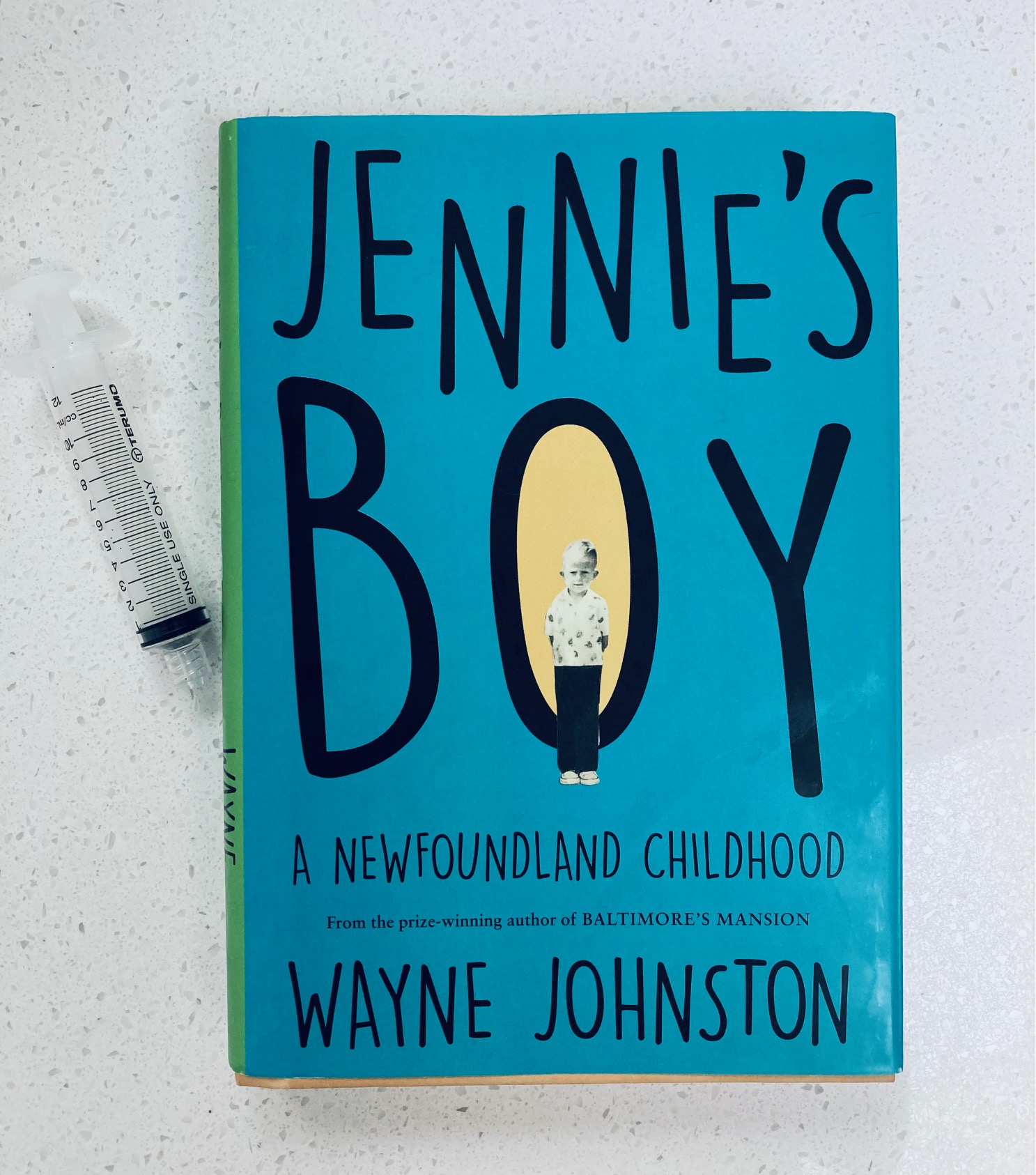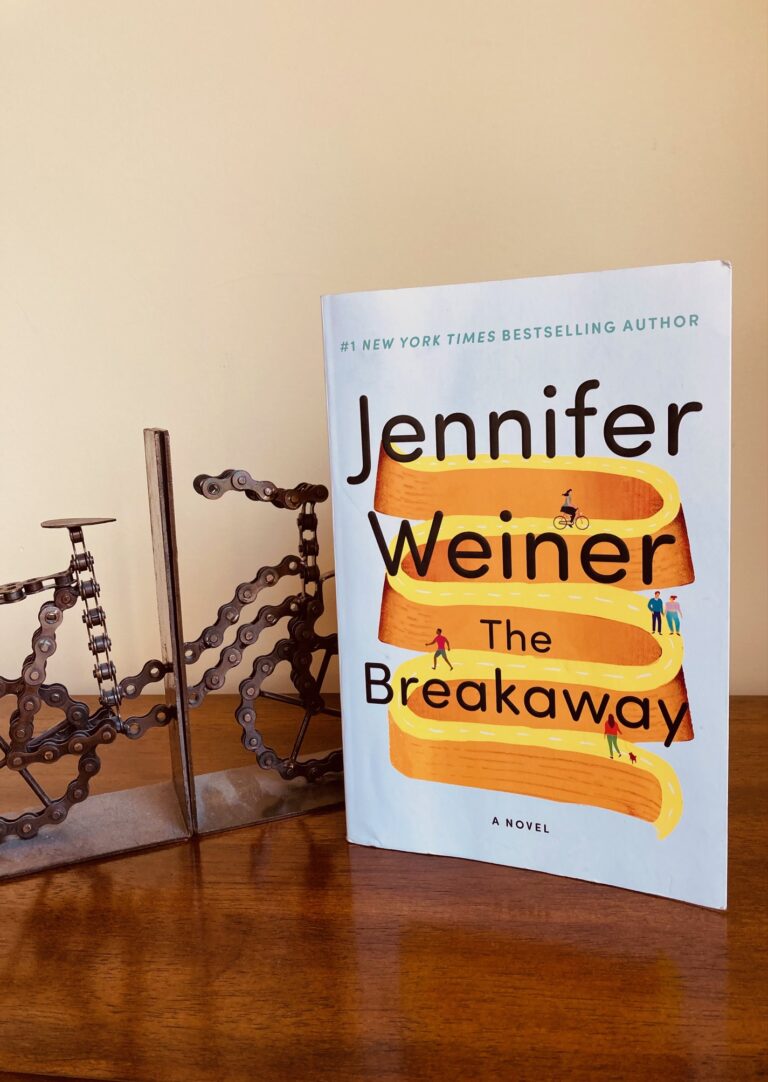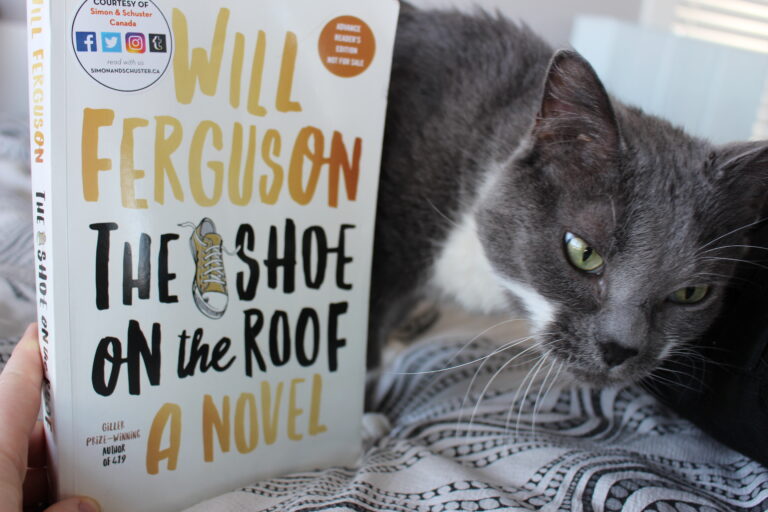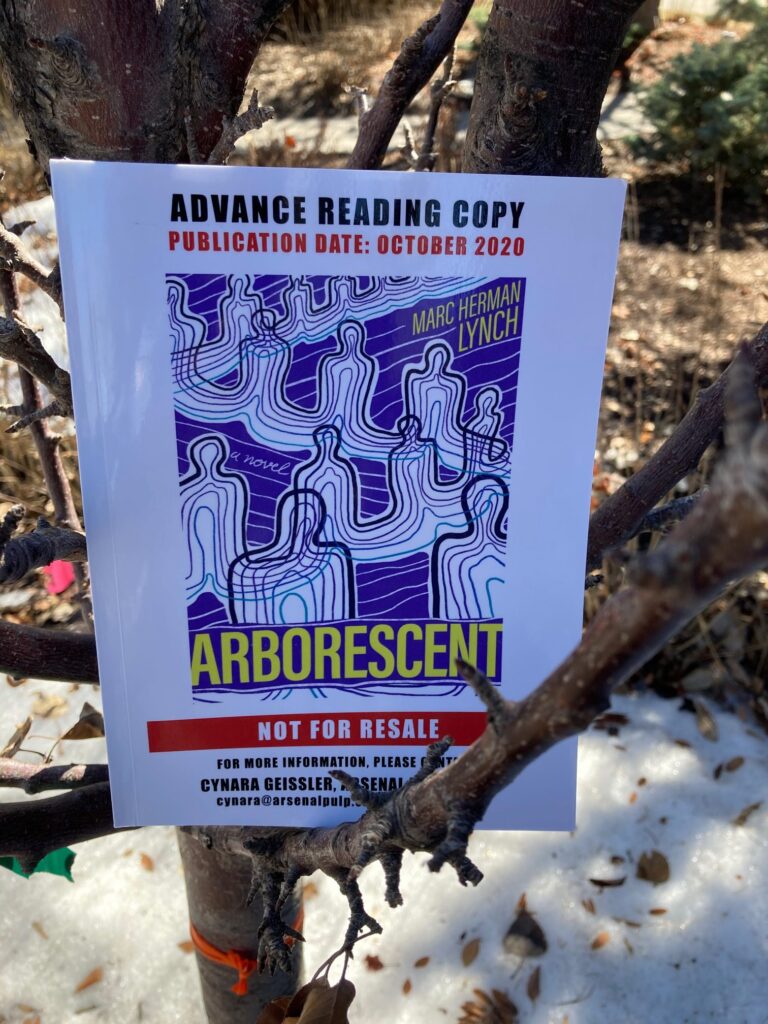Book Review: Jennie’s Boy, A Newfoundland Childhood by Wayne Johnston

What feels like ages ago now, when I worked at the literary festival here in Calgary we hosted Wayne Johnston, a bestselling Canadian writer. If I had known then what I now know about him, I would have likely seen him in a whole different light when we met in person. He’s been writing for decades, most often fiction, but his latest release Jennie’s Boy is a memoir about his childhood growing up in extreme poverty, in Newfoundland. This is not an easy read, as Johnston had a difficult life (an understatement), but it’s uplifting to know that he grew out of these difficulties into a successful writer, so in the end, this book does have a happy ending. If you do pick this one up, keep this in mind as it will help you push through the hard stuff.
Book Summary
Covering the course of approximately 6 months in 1966 and 1967, Johnston describes a snippet of his life at the age of 7. He had three other brothers, and his mother Jennie was pregnant with her fifth child. They moved around a lot because they were constantly getting kicked out of their rental homes. They had very little money – his father worked, but drank most of his earnings away. His mother also worked when she could, but was always fired as soon as she became pregnant. Wayne was constantly sick. He threw up almost everything he ate, and caught every kind of sickness that came his way. He coughed constantly, and suffered from insomnia. He had what he called a ‘bedmobile’ which was essentially a bed on wheels which he had to push around the house so others could escape his coughing. He eventually became too sick to attend school, so he stayed home with his grandmother who lived across the road, and together they would pray each day to the shrine she made for her deceased son Leonard – an uncle Wayne never got the chance to meet. Despite all these challenges, Wayne kept going, suffering through a myriad of illness and familial strife, somehow able to still find bits of humour in these childhood memories.
My Thoughts
Even though this is a book about the past, it is, oddly, written in the present tense. Keeping in mind that Johnston may be misremembering certain situations, once you give him that artistic license you become fully caught up in his life at that time. The book becomes much more effective at adding gravity to these situations, because we see everything from the mind of a 7-year-old. And reading from the perspective of a character so sickly as Johnston, there is a sense that he may not survive to be an adult, which means he’s willing to put up with quite a bit more than a usual kid his age, but people treat him differently too. We learn he had multiple abscesses in his mouth, but with little to no money, they were left untreated, and he never once complained about them either – it wasn’t until a welfare officer inspected his mouth and alerted Wayne’s parents to them that the issue was even raised. So as readers, we realize that this perspective is an odd, but unique gift. It’s not that the narration is unreliable, instead, it’s that we must understand how brutally different these circumstances were for young Wayne, and how that shaped the way he reacted to his special place in the world.
Johnston’s childhood perspective isn’t the only unique voice we hear in this book; his mother Jennie and Jennie’s mother Lucy have a major influence on Wayne, but not in the way one would think. Both these women are devout Christians, and Jennie insists on her entire family kneeling and saying their prayers together every night in the kitchen. Both women are also convinced (along with most everyone else in their town) that Wayne is likely to not survive into his teenage years, so they treat him almost as a temporary being in their midst. Lucy is at one point, convinced that Wayne’s prayers saved her life; but despite being surrounded by these god-fearing women, Wayne doesn’t really believe in God, doesn’t even really think about him either. Like most young boys, he’s more concerned with fitting in with his older brothers and finding his place within the family unit.
Although this book mostly describes the challenges of life below the poverty line and the added burden of being sick all the time, I couldn’t help but constantly compare his early life to his present one; how does this kind of upbringing change a person? Is Johnston a ‘tougher’ soul than most by living through these circumstances? We never get to hear from present-day Wayne, but I’m curious how his childhood has shaped his current life and outlook. I may never know the answer, but if I ever do have the chance to meet Johnston again, I’ll appreciate it much more knowing what he overcame in his past.





Your point about remembering he survived and became a successful writer is a good one. I remember reading a childhood memoir about a girl who was taken away from her neglectful mother and put in an orphanage, and knowing that she too survived and thrived helped me through the hard parts of that.
reading about kids suffering is difficult, no matter what the circumstances, but I’m so glad everything worked out this boy/man
I learned that sometimes kids in poverty are sickly due to malnourishment or drafty houses, but sometimes it’s food that has spoiled or unclean conditions that lead to constant food poisoning. I’d never thought about that before I learned about it.
Oh yes, there’s no doubt that all these factors contributed to Wayne’s early childhood, poor guy.
It’s
amazing what some kids can endure and come out of. I am fascinated by why some people get out of toxic cycles and why some others keep repeating them.
Yes it is quite interesting. Something I’ve learned at my job (at a youth-focused charity) is that these cycles are often broken when a child has a trusted and carling adult in their life. This can make the difference between success and failure in the future.